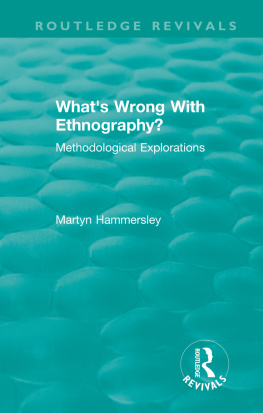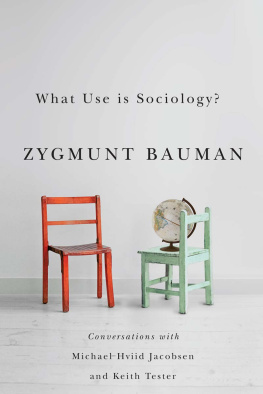Routledge Revivals
The Sociology of Belief
First published in 1980, this book presents a study of knowledge and the patterns of social and scientific thought. Keith Dixon argues that traditional and contemporary formulations of the sociology of knowledge involve a series of fallacies, and the claim to reduce knowledge to ideology devalues the role of reasoned inquiry. Chapters discuss such areas as the theories of Man: and Mannheim, the sociology of science and of religious belief. With a detailed conclusion analysing the foundations and limits of the sociology of knowledge, this reissue will provide an interesting and useful analysis for students of Sociology.
The sociology of belief
Fallacy and foundation
Keith Dixon
First published in 1980
by Routledge & Kegan Paul Ltd
This edition first published in 2014 by Routledge
2 Park Square, Milton Park, Abingdon, Oxon, OX14 4RN
and by Routledge
711 Third Avenue, New York, NY 10017
Routledge is an imprint of the Taylor & Francis Group, an informa business
1980 Keith Dixon
The right of Keith Dixon to be identified as author of this work has been asserted by him in accordance with sections 77 and 78 of the Copyright, Designs and Parents Act 1988.
All rights reserved. No part of rhis book may be reprinted or reproduced or utilised in any form or by any electronic, mechanical, or other means, now known or hereafter invented, including photocopying and recording, or in any information storage or retrieval system, without permission in writing from the publishers.
Publishers Note
The publisher has gone to great lengths to ensure the quality of rhis reprint but points out that some imperfections in the original copies may be apparent.
Disclaimer
The publisher has made every effort to trace copyright holders and welcomes correspondence from those they have been unable to contact.
A Library of Congress record exists under LC control number: 79042834
ISBN 13: 978-0-415-73744-9 (hbk)
ISBN 13: 978-1-315-81804-7 (ebk)
Keith Dixon
The sociology of belief
Fallacy and foundation
First published in 1980
by Routledge & Kegan Paul Ltd
39 Store Street, London WC1E 7DD,
Broadway House, Newtown Road,
Henley-on-Thames, Oxon RG9 1EN and
9 Park Street, Boston, Mass. 02108, USA
Set in Linotron Garamond by
Input Typesetting Ltd
London
and printed in Great Britain by
Lowe & Brydone Ltd
Thetford, Norfolk
Keith Dixon 1980
No part of this book may be reproduced in
any form without permission from the
publisher, except for the quotation of brief
passages in criticism
British Library Cataloguing in Publication Data
Dixon, Keith
The sociology of belief. (Monographs in social theory).
1. Knowledge, Sociology of
I. Title II. Series
301.21 BD175 7942834
ISBN 0 7100 0444 3
ISBN 0 7100 0445 1 Pbk
Contents
To Barbara, Ruth and Sarah and to Helen, who suggested the title
Men think. They formulate ideas at varying levels of abstraction, generality and precision: they make assumptions, categorise, systematise, theorise, argue, debate, cavil, define, criticise, cajole, denounce, state, believe, recommend, excuse, order and explain. These diverse thought processes and speech acts necessarily occur within a social context since even internal dialogue presupposes a familiarity with social others. The central concern of the sociology of knowledge is to delineate the general and specific relationships between such thoughts and the social and historical location of the thinker.
Initially, work within the sociology of knowledge concentrated upon the so-called demystification or decoding of religious, political and social ideas, for they can plausibly be construed as rationalisations or apologias for generalised or particular economic or social interests. The allegedly value-laden and partial premises implicit in metaphysical or social theorising were stripped bare of manifest meaning and content to reveal latent connections with class or community affiliation or interest.
Recently, however, physical science and so-called common-sense knowledge have been subjected to similar treatment on the grounds that such knowledge is, at least in part, defined, controlled, disseminated and manipulated by powerful organised elites or structured through immediate social transactions. To my knowledge a comprehensive sociology of logic and mathematics has not yet been attempted, although philosophical colleagues of mine have occasionally remarked that in the present climate of opinion they ought perhaps to consider devising courses in bourgeois or feminine logic categories of thought not having obvious prima facie application!
The sociology of knowledge is a sub-discipline which has proved of increasing interest to philosophers, since its alleged or perceived tendency is to deny the validity of distinctions hallowed in philosophical text books, literature and discussion notably that distinction between epistemological inquiry concerning the foundation and justification of knowledge and socio-historical enquiry into the origins of knowledge. It is, however, of no avail to dismiss the discipline as an elaborate and tedious articulation of the Genetic Fallacy for what is at issue is the very application of traditional logical categories to questions about knowledge. Epistemology, it has been argued, is itself intimately enmeshed in the social. Distinction-making has a context; philosophy is an elite discipline self-interestedly assisting in defining, analysing and controlling the dissemination of what is to count as knowledge. Even such concepts as objectivity, observation, theoretical coherence and value-neutrality are seen as discipline-specific notions which stand in need of sociological unmasking. Often, however, the sociologist of knowledge attenuates his criticism, or more bluntly, refuses to face up to the problem of following out the implications of his assault upon traditional assumptions by insisting that his discipline is one in which epistemological questions need not be directly faced.
Now nobody, I take it, would wish to deny a priori a possible connection between ideas and the wider society. Evidence of personal and communal rationalisation, self-deceit and propagandist intent is too well documented to sustain even an empirically based denial of that connection. Nevertheless, even if it be a necessary truth that all ideas are arrived at within a defined social milieu, it by no means follows that the delineation of the milieu is sufficient to explain why people formulate and hold the views that they do. Indeed to assume so is to be hoist with ones own petard. Strictly interpreted, doesnt the sociology of knowledge lead to the abyss of relativism? Isnt rationality itself undermined; the possibility of genuine knowledge negated and common understandings made suspect? And, if the concept of knowledge has no epistemological foothold, is the most we can do to explore our sociologically determined relevance structures in order to communicate with others? Isnt it abundantly obvious that the sociologist is entwined in a trap of his own construction?











